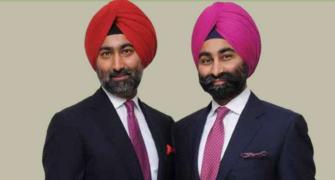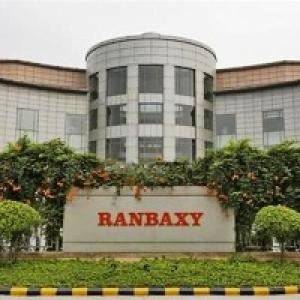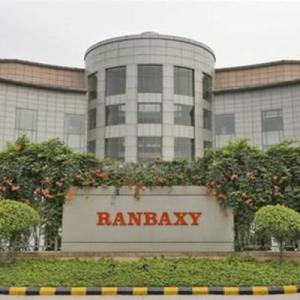'Nothing in this world is permanent. So also in business.'
'And more so in family businesses where family issues often influence business decisions,' point out S Subramanian and Nupur Pavan Bang.

Looks like promoters of a few family businesses refuse to learn from the past or fail to put mechanisms in place to prevent a recurrence of feuds in the family.
Until the early 1990s, feuds in family businesses could not destruct the family wealth entirely as the businesses had the coveted licences in a controlled economy and the cover of limited competition.
In a liberalised economy, feuds between the promoter family members not only spoil the reputation of the family and the company, but also destroy shareholder value.
Look no further than two recent cases for proof.
On September 4, 2018, Shivinder Singh, co-founder of Fortis Healthcare, filed a case against his elder brother Malvinder Singh in the National Company Law Tribunal for oppression and mismanagement at group companies RHC Holding, Religare and Fortis Healthcare.
Though Shivinder later withdrew his petition, his move confirmed all was not well between the two brothers.
Malvinder and Shivinder inherited Ranbaxy Labs from their father Parvinder. Parvinder was the eldest son of Bhai Mohan Singh, founder of Ranbaxy.
Bhai Mohan Singh split his business empire among his sons Parvinder, Manjit and Analjit in the late 1980s.
The split was considered in favour of his elder son who got the crown jewel, Ranbaxy Labs.
In the early 1990s, Bhai Mohan Singh and Parvinder got into a battle for the control of Ranbaxy, as an outcome of which Bhai Mohan Singh was ousted from the board.
Again, in the late 1990s and early 2000s, after Parvinder's death, Bhai Mohan Singh and Manjit fought with Parvinder's sons Malvinder and Shivinder regarding the shareholding of Ranbaxy.
Governance issues came to the fore each time.

Now consider the Raymond Group. In August 2017, group founder and patriarch Vijaypat Singhania had an ugly legal fight with his son and managing director of group flagship Raymond Ltd, Gautam Hari Singhania.
In the late 1990s, Vijaypat's elder son Madhupati spilt from the family business after a bitter feud with his father. In a family settlement, Madhupati relinquished his rights, as well as those of his children, to the family businesses.
After his exit, Gautam, the younger son, got control of Raymond.
In 2013-2014, Vijaypat's brother Ajaypat's children were controversially removed from the list of promoters.
In 2015, when Vijaypat transferred his shareholding in Raymond to Gautam, the children of Madhupati filed a case against their grandfather for depriving them of their share in the ancestral wealth.
Various cases amongst different factions of the Singhania family are ongoing and unresolved even today.
Invariably, these groups have serious governance issues. Recently, Malvinder and Shivinder were forced to give up control of Fortis.
The sale of Ranbaxy Laboratories to Japanese pharma major Daiichi Sankyo had ethical issues as the buyer alleged that the Singh brothers hid irregularities probed by the US FDA while selling the company.
Similarly, corporate governance issues in Raymond were highlighted when a minority shareholder alleged in March 2017 that the promoters of Raymond Group have been using company cash for personal benefits.
In its AGM in June 2017, a resolution to sell its premium real estate at throwaway prices to promoters of Raymond and their extended family was presented to the board. It was defeated by shareholders.
Regulators and external stakeholders keep a check on corporate governance. But an equally significant aspect is family governance.
Family governance needs to be put in place by the family alone, voluntarily, and needs to be followed in spirit as there is no law that dictates that it needs to be put in place or that it needs to be followed.
To ensure that relations don't sour, start the governance process early on. It is easier to get the buy in from family members when the going is good.
While damage control is often done when an issue gets out of hand, the softer issues of family governance are not taken up on a priority basis when more pressing business matters keep the family patriarch busy.
Conglomerates like the Murugappa Group and the GMR Group have put in place detailed family constitutions to guide members in times of doubt, conflicts and crisis.
While the Murugappa Group is in its fifth generation, the GMR Group is controlled and managed by the first and the second generation family members.
On a philosophical note, nothing in this world is permanent. So also in business. And more so in family businesses where family issues often influence business decisions.
In such an environment, clarity and explicit guidance will go a long way in building lasting institutions and family legacies.
S Subramanian is chairperson, accreditation and ranking, and associate professor, IIM Kozhikode; Bang is associate director, Thomas Schmidheiny Centre for Family Enterprise, ISB.










